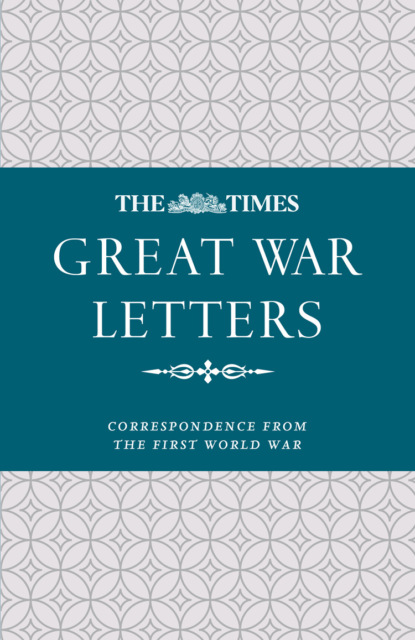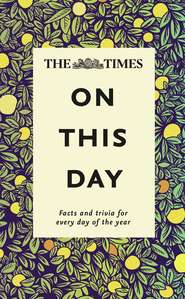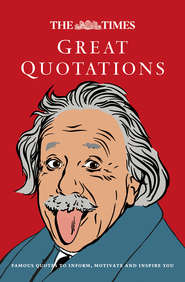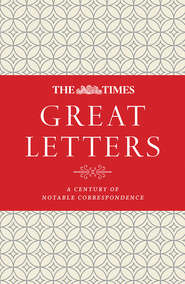По всем вопросам обращайтесь на: info@litportal.ru
(©) 2003-2024.
✖
The Times Great War Letters: Correspondence during the First World War
Автор
Год написания книги
2019
Настройки чтения
Размер шрифта
Высота строк
Поля
SIR,—I WONDER WHETHER you or any of your readers could give me any certain information as to what is or is going to be the official name for the present war. Those of us who have to record matters are in a difficulty with regard to it. The general opinion rather seems to point to the use of the term “European War,” but this, of course, ignores a very important part of the fighting in which this country is concerned in China, South Africa, Asiatic Turkey, and elsewhere.
I am, Sir, your obedient servant,
A. C. FOX-DAVIES, Editor of “Burke’s Landed Gentry”
FROSTBITE IN THE TRENCHES
25 January 1915
SIR,—REFERRING TO A letter headed “Frostbite” in your issue of yesterday, it may interest your correspondent to know that we were served out with grease before going up to the trenches on Christmas Eve. I rubbed my legs and feet thoroughly with this and was careful to leave my boots and puttees loose—but I arrived home on January 1 with frostbite in both feet, and am still laid up.
As to comparing us with men who explore the Poles, I do not know much about Polar expeditions, but I imagine that the men contrive to keep their legs and feet fairly dry, and have plenty of opportunities of taking exercise and keeping the circulation going. Whereas, in my particular case, I was for 36 hours in a trench which was so badly knocked about and fallen in, and had such an ineffective parapet, that it was simply “asking for trouble” to stand in anything like an upright position. The main trench was over knee deep in liquid mud (frozen over on Christmas morning), and the consistency of the ground in my particular traverse was such that if I kept my feet in the same place for a few minutes on end it was quite an effort to pull them out. You will readily see, then, that stamping or “marking time” was quite impossible, and we were reduced to knocking our feet together or hammering them with an entrenching-tool handle. I spent most of Christmas Eve and the following morning in such cheerful pastimes, but by lunch-time my feet and ankles were quite numbed. Our cubby-hole, by the way, had fallen in, and we had no hot shower-baths, stoves, drawing-room carpets, or other luxuries which abound in these Aladdin’s-Cave-cum-Ritz-Hotel trenches I have read about in the papers.
If your correspondent will excuse me saying so—when speaking, as he does in the last sentence of his letter, about “proper precautions” and so on, he does not realize the difficulties with which the authorities have to contend, especially when the trenches are only some 80 yards away from the Germans, as ours were. And I can assure him that when I left any amount of things were being done to improve the condition, and make things more comfortable for the men. But mud and frost are difficult things to deal with at any time, and how much more so when one or two crack shots are waiting to put a bullet through the first head or arm that appears.
Yours truly,
ONE WHO’S TRIED IT
PRIVATE LETTERS AND THE CENSORSHIP
27 January 1915
SIR,—MAY I APPEAL TO you on a matter which interests a large number of persons, who, like myself, must be at a loss to know how to act?
Before Christmas I wrote a letter to my friend Mr. Compton Mackenzie, the novelist, who lives in Capri. It was delivered, after a very long delay (of which we make no complaint), but it was accompanied by a curtly-worded communication from the English censorship, desiring Mr. Mackenzie to tell his correspondent that, in future, if the latter wished his letters to be delivered he must write “shortly and clearly.” As far as “clearness” is concerned, my handwriting, whatever its demerits, is as clear as print. As far as “shortness” is concerned, my letter was not longer than one is accustomed to write to a friend abroad. I wrote exclusively about a literary matter interesting to Mr. Compton Mackenzie and myself. Political questions, even the war itself, were not mentioned or approached. Mr. Mackenzie’s reply, which was as long as my letter, and dealt with precisely the same subject, came to me without delay, and without having been opened.
As I desire nothing less than to incommode a busy public department, I wrote privately to the Censor, stating what I have mentioned above, and asking for definite instructions. I have had a civil reply, but not the least explanation or information. Can you, Sir, therefore inform me what number of words the Censor permits a friend in England to address to a friend in a neutral country?
I am, Sir, your obedient servant,
EDMUND GOSSE
LEECHES
28 January 1915
SIR,—OUR COUNTRY HAS been for many months suffering from a serious shortage of leeches. As long ago as last November there were only a few dozen left in London, and they were secondhand.
Whilst General Joffre, General von Kluck, General von Hindenburg, and the Grand Duke Nicholas persist in fighting over some of the best leech-areas in Europe, possibly unwittingly, this shortage will continue, for even in Wordsworth’s time the native supply was diminishing, and since then we have for many years largely depended on importations from France and Central Europe. In November I made some efforts to alleviate the situation by applying to America and Canada, but without success. I then applied to India, and last week, owing to the kindness of Dr. Annandale, Director of the Indian Museum at Calcutta, and to the officers of the P. and O. Company and to Colonel Alcock, M.D., of the London School of Tropical Medicine, I have succeeded in landing a fine consignment of a leech which is used for blood-letting in India. It is true that the leech is not the Hirudo medicinalis of our pharmacopœias, but a different genus and species, Limnatis granulosa. Judging by its size, always a varying quantity in a leech, we may have to readjust our ideas as to a leech’s cubic capacity, yet I believe, from seeing them a day or two ago, they are willing and even anxious to do their duty. They have stood the voyage from Bombay and the changed climatic conditions very satisfactorily, and are in a state of great activity and apparent hunger at 50, Wigmore-street, London, W.
It is true that leeches are not used to anything like the extent they were 80 years ago—Paris alone, about 1830, made use of some 52 millions a year—but still they are used, though in much smaller numbers.
It may be of some consolation to my fellow-countrymen to know that our deficiency in leeches is more than compensated by the appalling shortage of sausage-skins in Middle Europe. With true German thoroughness they are trying to make artificial ones!
I am yours faithfully,
A. E. SHIPLEY
WELSH GUARDS
2 February 1915
SIR,—IN THE MAGNIFICENT response made by all the nations to the Empire’s call Wales has nobly borne its share. Even before the appeal of Mr. Lloyd George for the formation of two Welsh Army Corps it had already sent some 40,000 men to the Regular Army. The 23rd Royal Welsh Fusiliers, the 24th South Wales Borderers, and the 41st, the Welsh Regiment, occupy a position of high honour. Between August 4 and January 9 the number of men recruited in Wales exceeded 70,000, and it was estimated that districts from which returns were at that time incomplete would bring the total over 85,000. Since then the response of Welshmen to the call to join the new Army has been prompt and steady.
This being so, by way of recognition of the magnificent behaviour of the men of Wales of age to join the colours, having regard, too, to their “excellent character” as soldiers, and to further rouse the martial spirit of their nation in support of this just war, would it not be a graceful compliment, which no Welshman would be ever likely to forget, to form a Regiment of Welsh Guards? The sister nations of England and Scotland have for a long time past had their Guards Regiments, and only a few years ago the formation of the Irish Guards afforded ample evidence of how much gratification and pride that most tactful idea of the late Queen Victoria created in the national sentiment of Ireland.
No suggestion would be more popularly acclaimed in Wales. No idea would more vividly stir the imagination of the people. A battalion could be raised in very quick time, especially, as might, perhaps, be necessary, if the standard of height usual in Guards Regiments were slightly reduced. Then, with Wales’s own young Prince as Colonel-in-Chief, there would exist a new regiment of Guards of which both Wales and the British Army would have every justification in feeling proud. A highly-emotional and always loyal people, the Welsh even now let none of the Empire’s races outvie them in valour or in loyalty, and I confidently submit it would be sound policy for Lord Kitchener to carry out the proposition set forth.
I am, Sir, yours faithfully,
J. AUBREY REES
Four days after the publication of this letter, King George V commanded that a battalion of Welsh Guards be raised.
INTRUSION ON BEREAVEMENT
9 February 1915
SIR,—MAY I, AS ONE whose sad privilege it has been to announce the death of one of his sons in action in your paper, venture to make an appeal on behalf of those who in the future may have to follow in my footsteps?
I appeal first to those who in the interests of their business watch your obituary columns, and think they afford an opportunity of pushing the sale of their wares in the form of sculptured urn or Iona cross, forgetful, perhaps, that our boy lies “within some lonely glen,” the very site of whose grave may have passed already from human memory, or may perhaps be identified by some faithful French peasant in whose cottage he died when we go on our way weeping to find it when the war is over. I would ask these tradesmen to respect our mourning and to remember that few of us, be we father, mother, husband, wife, have not already had recourse some time or other to their services, and when the time appropriate occurs may seek it again.
Then, again, there are the photograph enlargers, miniature painters, &c., and finally I would appeal to those who, with a singular lack of delicacy and failure to understand the ethics of Christianity, take the opportunity of plunging our stricken souls into vexed questions of eschatology, and ask us to ponder the probability of our dear one’s “soul being saved” by means of circulars dwelling on this solemn subject. It is not only impertinent but fatuous, and would seem almost incredible that people should have such bad taste; but it is the case, and only last week such a pamphlet found its way into my fire.
Then, again, there are other societies of a philanthropic character who take the opportunity of a chance appearance of one’s name in the paper to urge the insistence of their claims at a moment when personal sorrow does not make even the most benevolent the most approachable.
I suppose these worthy tradesmen and societies can have no knowledge of the pain and annoyance they give in systematically opening wounds that God’s comfort is quietly healing, but if they have not, I would ask them to put themselves in our place, and not to exploit our grief for their advantage, and whilst we mourn our fallen soldier, leave us alone in our glory.
Yours faithfully,
PATER MÆRENS
THE ZEPPELIN RAID ON THE EAST COAST
11 February 1915
SIR,—I REGRET I WAS not in the House of Commons when the Home Secretary, in answer to a question put by Sir William Bull, unexpectedly made a statement regarding the motor-cars alleged to have accompanied the Zeppelins in their raid on the East Coast. Perhaps, under these circumstances, you will kindly allow me the hospitality of your columns in order to submit a counter-statement, for I am anxious that the public should be placed in possession of the real facts of the case.
Let me first test the value of the Home Secretary’s statement that there were eight cars traced by the Norfolk Constabulary about the time of the raid and satisfactorily accounted for. The Constabulary were singularly blind that night. There were no less than six cars in different parts of Snettisham at the time mentioned, three of which were open to the gravest suspicion. Of these three the constable saw nothing. Similarly, the constable stationed at Heacham, where two bombs fell, informed me that after 6.30 p.m. no car passed through that place. As a matter of fact two cars visited the lower part of the village, one immediately before and one immediately after the raid, and both excited suspicion. Again, within 20 minutes of each other three cars dashed through Brancaster Staith, which is 10 miles distant from Heacham, the last one closely followed by the Zeppelin. The audacity of the occupants of that car passes belief, but in order that the statement of the witness I am about to quote may not be brushed aside too lightly, I ought to explain that the Zeppelin, whilst over Brancaster Staith, was flying very low, scarcely higher, as another witness states, than the telegraph wires. And I may as well here say that all my statements are based upon the evidence of what I believe to be perfectly credible witnesses. Here is the statement referred to:—
“On that particular night I was in my home in Brancaster Staith. About 10 p.m. I heard a Zeppelin passing over the house. It remained some minutes above the field adjoining, as if uncertain about something. A motor-car with the most brilliant headlights imaginable then rushed along the road from Deepdale towards Brancaster, and when by the side of the field mentioned above the occupants in the car all shouted very loudly, and two small lights were flashed as a reply from the Zeppelin. Then the latter travelled off after the motor-car. I saw the headlights and heard the shouting, but did not see the two lights from the Zeppelin, as I was in the front of the house; but the lights were seen by other occupants of the house… My observations were those of many people in Brancaster Staith.”
When it is remembered that the night was very still and that the Zeppelin (as remarked to me by witnesses in other parts of the county) occasionally shut off her engines, I submit there is nothing incredible in this statement.
I have a number of letters before me giving evidence of the presence of motor-cars that night in various parts of the county, but it is unnecessary to belabour that portion of the evidence. Correspondents from all parts of the county speak of seeing a motor-car with extraordinarily powerful lights in different places followed by an airship and sometimes throwing up flashes. A well-known and much-respected farmer living on the land high above Snettisham Church speaks to seeing flashes of light sent up from six different parts in the neighbourhood, and he has forwarded me a diagram giving the approximate position of the Zeppelin as judged by the noise of her engines and the spots whence the flashes proceeded. Another farmer, also perfectly trustworthy, gives evidence of a powerful light on the other side of Snettisham being directed on the church a moment before the dropping of the bomb. There are eight credible witnesses who can speak to the flashes that proceeded from “Sixpenny Hole” and attracted the Zeppelin to the church. The car that threw these flashes went off by a narrow side lane, which no one who could avoid it would take by night. This car reappeared at the turning into Dersingham and there threw up what appeared to be a definite signal—two upward flashes and one cross flash. At the turning by the church, which leads directly to Sandringham, it threw up more flashes. Similar evidence is forthcoming from the other districts from west to east, right up to the suburbs of Norwich. What a strange series of coincidences are required to explain the circumstance that a powerfully lighted motor-car constantly preceded the Zeppelin in its journeyings through Norfolk that night! And can anyone suggest a reason why the sober inhabitants of Norfolk should be found rushing about the county at a particular moment bombarding the heavens with flashes?
Many of us have a great admiration for our Norfolk Constabulary, who are a fine set of men, and do their duty to the best of their ability. They are usually, however, planted at night in the main streets of our villages, and there is no need for anyone on devilry bent to trespass on their beat. They saw nothing of motor-cars on the night of the raid, and they are not willing to accept evidence that they cannot personally verify. I was so afraid that the Under-Secretary of State for War, relying on their evidence, might give a wrong answer to the question I put to him in the House on Monday last, that I called at the War Office on the previous Saturday and produced certain evidence for his guidance, if necessary. Indeed, a suggestion, which I accepted, was made to me that an officer should call and examine the evidence in my possession. In the meanwhile the Home Secretary has rushed in with a statement which ought not to have been made until that evidence was tested. Had such been the case, I feel sure his answer to Sir William Bull’s question would have been on entirely different lines.








